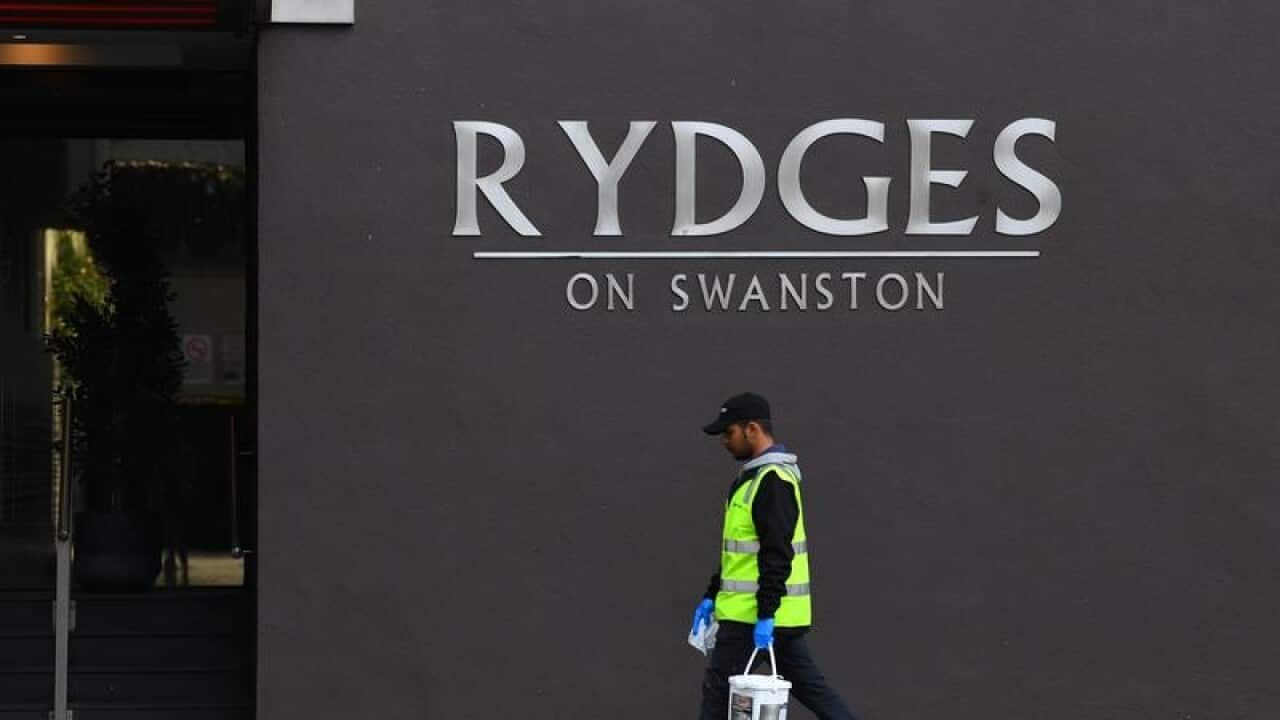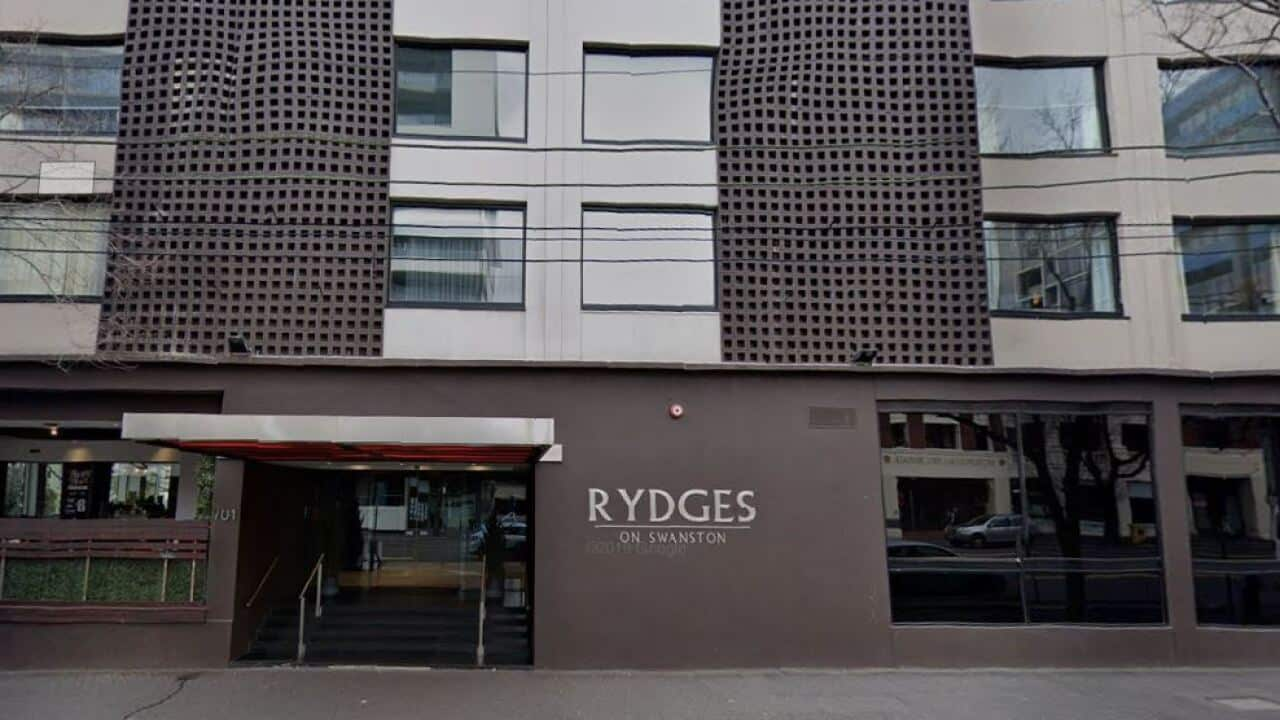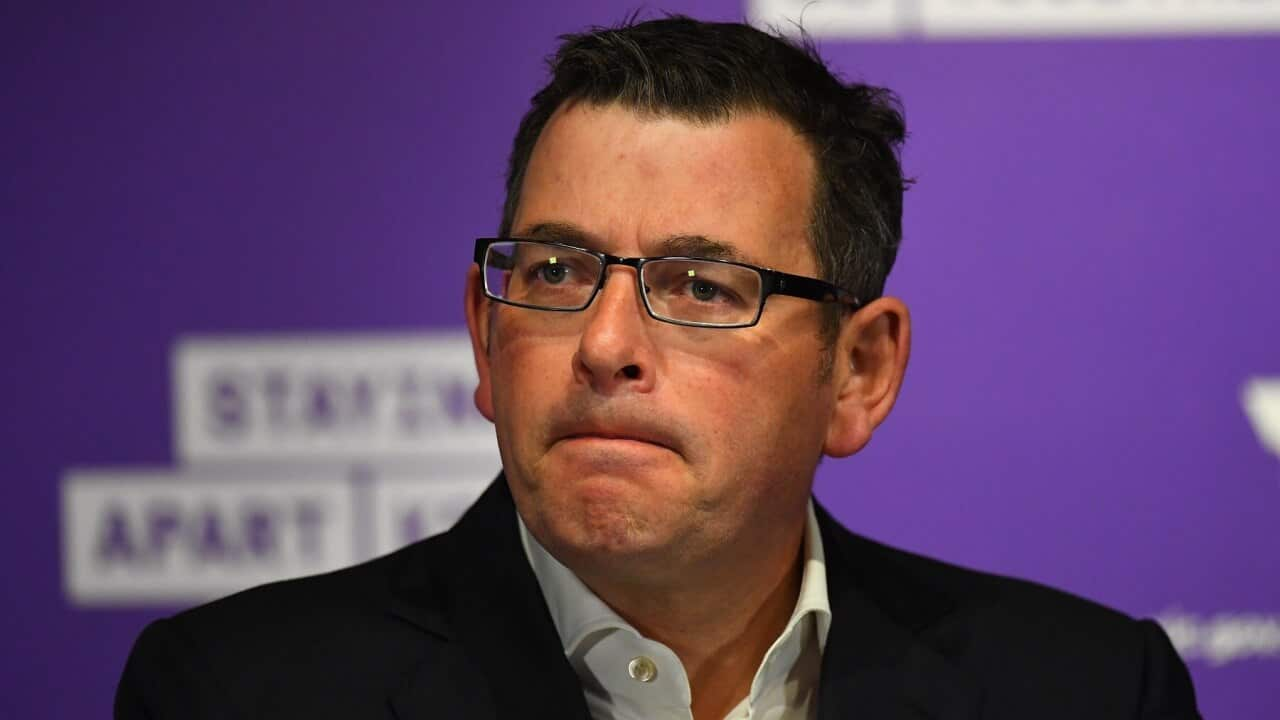The decision to use private security in quarantine hotels was influenced by Victoria Police's "preference" not to do the job, an inquiry has heard.
Victoria's hotel quarantine inquiry on Monday heard the fateful decision to use guards was likely made at a meeting at the state control centre on the afternoon of 27 March.
Counsel assisting the inquiry Rachel Ellyard said the decision wasn't made by one person or government department.
Instead, it was a "creeping assumption that became a reality".
"While no one person made a decision, by the end of that state control centre meeting, it was understood by all present that that was what was going to happen," Ms Ellyard said.
In that meeting, Victoria Police Assistant Commissioner Mick Grainger said it was the force's "preference" that private security be used.
"The expression of a preference can readily be understood to have given the clear impression that police weren't going to do it and there needed to be an alternative," Ms Ellyard said.
"Their preference became the outcome."
She said once the decision had been made, no one in the meeting gave "any specific consideration" to the suitability of private security for the job.
Contracts written up by the Department of Jobs, Precincts and Regions left infection control and training in personal protective equipment use to the security companies.
Hotels, meanwhile, were responsible for cleaning, unless a returned traveller tested positive to COVID-19.
"Responsibility for managing the risk of infection and providing for the safety of those involved in the program should have remained with the state. No contract should have purported to outsource those matters," Ms Ellyard said.
Victoria's second wave of coronavirus can be traced back to outbreaks among security guards and staff at the Rydges on Swanston and Stamford Plaza hotels in mid-May and June.
Ms Ellyard said the Department of Health and Human Services was in charge of the program but its focus was largely on "logistics and compliance at the expense of public health".
Counsel assisting Ben Ihle said the program failed to meet its primary objective, which was to keep the community safe from the virus.
"The program that was intended to contain the disease, was instead a seeding ground for the spread of COVID-19 into the community," Mr Ihle said.
"The failure by the hotel quarantine program to contain this virus is, as at today's date, responsible for the deaths of 768 people and the infection of 18,418 others.
"One only needs to pause and to reflect on those figures to appreciate the full scope of devastation and despair occasioned as a result of the outbreaks."
Before the outbreaks, the state's death toll was 19.
Counsel assisting Tony Neal QC said there was no suggestion those who set up the program worked other than with "the best of intentions and to the best of their ability".
"Bad faith or corruption is not what the evidence shows," he said.
He said public servants were given the "enormous, immediate, unenviable" tasks of setting up the program within 36 hours.
"There was simply not the time to translate a policy into a plan," Mr Neal said.
He said a "multitude of decisions, actions and inactions" was to blame for the program's failure.
However, the three lawyers said it was not open to the inquiry to find Australian Defence Force personnel should have been engaged in the program.
The inquiry, headed by retired judge Jennifer Coate, has heard from 63 witnesses, including Premier Daniel Andrews, senior government ministers and public servants.
Mr Andrews told the inquiry on Friday he believed health minister Jenny Mikakos was responsible for the program. She .
The premier revealed on Monday the cost of the inquiry had nearly doubled to just under $6 million.
The inquiry's final report is due by 6 November.
People in Australia must stay at least 1.5 metres away from others. Check your jurisdiction's restrictions on gathering limits. If you are experiencing cold or flu symptoms, stay home and arrange a test by calling your doctor or contact the Coronavirus Health Information Hotline on 1800 020 080.
News and information is available in 63 languages at
Please check the relevant guidelines for your state or territory: , , , , , ,




